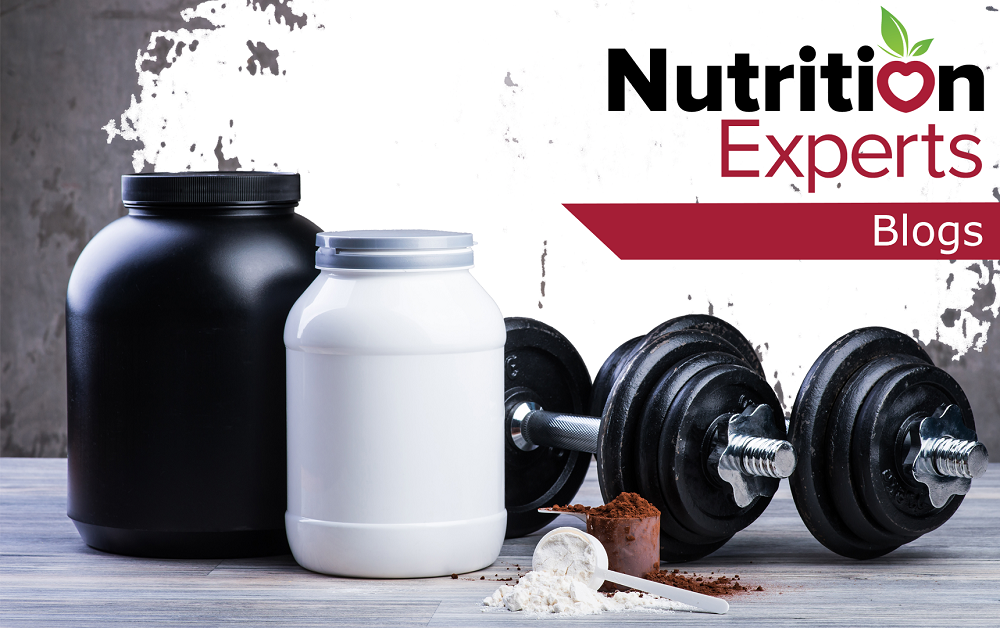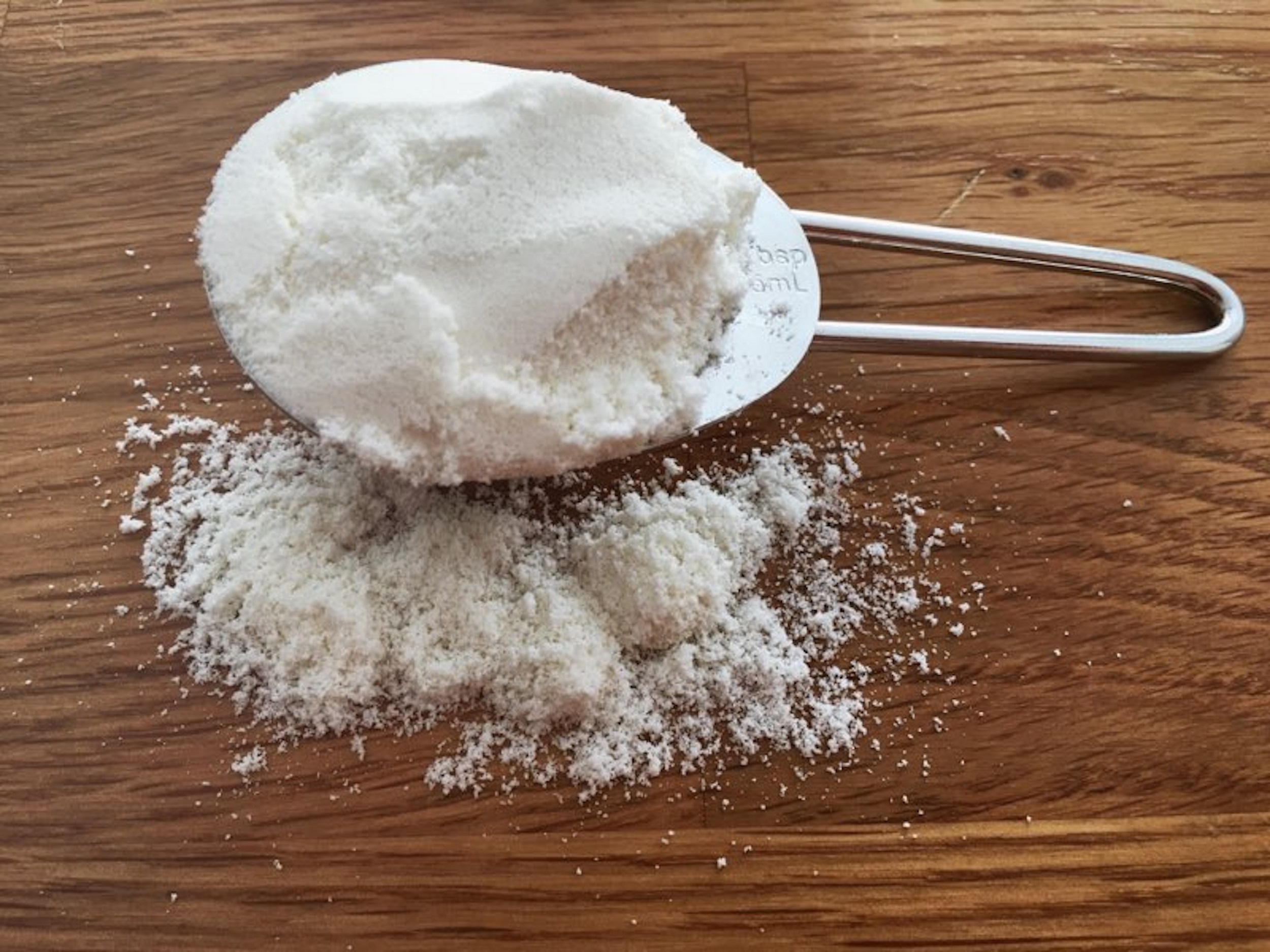
Image: Room 76/Shutterstock
By: Joey Gerardi, M.S. in Human Nutrition Candidate, CSUN Dietetic Intern
I began my journey in fitness and nutrition over ten years ago when my father started bringing me with him to the gym. Although I have grown up an athlete, mostly playing soccer and baseball throughout my childhood, weightlifting brought a new joy and challenge to my life that I had never before experienced. I have realized throughout the years that the food and nutrients I put into my body are just as, if not more important than the work I put in at the gym. Utilizing protein in my diet has served as an extremely beneficial tool in assisting me to in achieve my health and fitness goals through these past ten years.
“How much protein do I need to eat?” is a question very commonly asked in the world of nutrition and fitness.1 We’ll address that question a bit later, after we discuss protein in more detail.
What is protein?
Natalie Rizzo, a registered dietitian based out of New York City, writes that protein is considered to be the building block of tissues and can be found in your muscles, bones, skin, nail, hair, and just about every other organ in your body!1
Denise Webb, PhD and RD states that “dietary proteins are in a constant state of flux in the body, being broken down into amino acids, transformed into other compounds, and sometimes reassembled into other proteins.”2 She goes on to discuss how those proteins are utilized for energy, “a mechanism that increases when energy intake is low or when protein intake is inadequate.”2 After that, muscle protein turns into a source of energy, which results into a “negative nitrogen balance.”2
“Protein sources that contain all of the essential amino acids are considered to be complete proteins, while those that do not contain all of the essential amino acids are considered to be incomplete.”3 The authors of one study completed in 2006 discussed the differences in the quality of protein and considered high quality proteins to include ones with high concentrations of branched-chain amino acids.3 Additionally, they also stated that “recent improvements in the processing of proteins from food (e.g.,soy protein, egg protein, casein, whey, etc.) in the form of nutritional supplements have resulted in high amounts of essential amino acids and low amounts of dietary fat.”3 Consuming more of these high quality proteins from foods or supplement sources all contribute to the promotion of protein synthesis.3

Image: Oleh Palamarchuk /Pexels
How much protein should I be eating?
One article from foodandnutrition.org states that “for the standard adult diet, the recommended daily allowance of protein is 0.8 grams [as found on the nutrition label, not in weight] per kilogram of body weight… for the average gym-goer or recreational athlete, the most protein needed is about 1 to 1.2 grams per kilogram of body weight.”1
Alternatively, another article argues that “while it’s generally accepted that athletes need more protein than sedentary people, recommendations vary significantly depending on the type of athlete, current body weight, total energy intake, whether weight loss or weight gain is the goal, exercise intensity and duration, training status, the quality of the dietary protein, and the individual’s age.”2
What type of protein should I be eating?
Protein exists in a variety of different forms and can benefit your body and well-being different depending on your goals. If your goal is to maximize protein synthesis, which is beneficial for anybody looking to maintain a healthy lifestyle, regardless of your physical activity level, you can consume whey protein plus branch chain amino acids (leuicine, isoleucine, and valine).3
For those athletes reading this, the following protein sources can assist you in achieving a variety of physical fitness goals. If your goal is to increase muscle mass, your protein should be in the form of beta-hydroxy beto-methylbutyrate.4 If your goal is to increase your stamina, beta-alanine would be beneficial.4 Please see the following article containing a chart which provides excellent details on what protein products can be consumed based on your health and fitness goals.
CSUN Resources for your protein needs!
Please follow the Marilyn Magaram Center Youtube channel for delicious and healthy recipes, like this video on Whole Wheat Pancakes, which can easily be turned into a protein packed breakfast by simply adding a scoop of your favorite protein powder!
Additionally, be sure to book an appointment at the Marilyn Magaram Center for a Bod Pod and/or Nutrition Counseling session to help you maximize your nutrition related goals! These and other nutrition related services are offered to both students and the entire community.
References
- Rizzo, N. Do Gym-Goers Need Protein Shakes? Food and Nutrition Magazine. Updated March 31, 2016. https://foodandnutrition.org/blogs/stone-soup/gym-goers-need-protein-shakes/. Accessed November 16, 2018.
- Webb, D. Athletes and Protein Intake. Today’s Dietitian. 2014; 16(6): 22. https://www.todaysdietitian.com/newarchives/060114p22.shtml. Accessed November 16, 2018.
- Kersick C, Rasmussen, C, Lancaster, S, et al. The Effects of Protein and Amino Acid Supplementation on Performance and Training Adaptations during Ten Weeks of Resistance Training. Journal of Strength & Conditioning Research (Lippincott Williams & Wilkins). 2006;20(3):643. https://oce-ovid-com.libproxy.csun.edu/article/00124278-200608000-00028/HTML. Accessed November 17, 2018.
- Bell, J. Fueling for Fitness: Ingredients That Boost Performance. Today’s Dietitian. 2017; 19(4): 12. https://www.todaysdietitian.com/newarchives/0417p12.shtml. Accessed November 16, 2018.

I like how you note the amount required for the average gym-goer, as the main research I’ve seen focuses on the hardcore bodybuilders and runners, who require between 1.2g-1.4g (for runners) or 1.4g-1.8g (for bodybuilders). It’s also worth mentioning that there have been studies that timing when you take your protein is also important. Taking it immediately afterwards is more likely to prevent soreness or future injury. Thanks for the article!